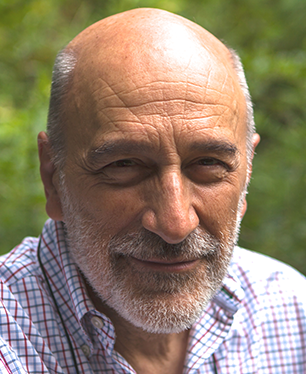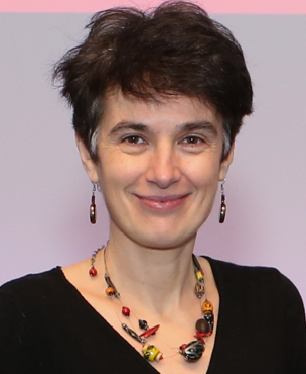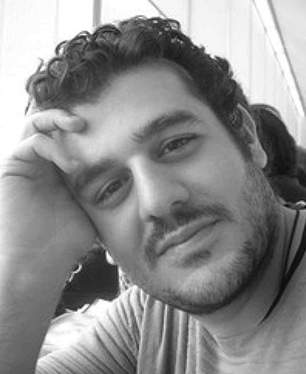PLENARY SPEAKERS
The following plenary talks will be given at IEEE MLSP 2023.
Multivariate Measures of Statistical Dependence

This talk presents a novel multivariate definition of statistical dependence using a functional methodology inspired by Alfred Rényi. We define a new symmetric and self-adjoint cross density kernel through a recursive bidirectional statistical mapping between conditional densities of continuous random processes, which directly estimates their statistical dependence.
The formulation requires fewer assumptions about the data generation model than current methods. The measure can also be estimated from realizations. The proposed functional maximum correlation algorithm (FMCA) is applied to a learning architecture with two multivariate neural networks that learn in tandem. Preliminary results with synthetic data and medium size image datasets corroborate the theory.
Plenary Speaker: José C. Príncipe (University of Florida, USA)
Speaker’s Bio: José C. Príncipe is Distinguished Professor of Electrical and Biomedical Engineering at the University of Florida since 2002. He joined the University of Florida in 1987, after an eight-year appointment as Professor at the University of Aveiro, in Portugal. Dr. Principe holds degrees in electrical engineering from the University of Porto (Bachelor), Portugal, University of Florida (Master and Ph.D.), USA. He created in 1991 the Computational NeuroEngineering Laboratory to synergistically focus the research in biological information processing models.
Schedule: September 17, 2023 – 6:00 PM, Cloister Hall, Sapienza University of Rome
Machine Learning for the Sciences – toward understanding

In recent years, machine learning (ML) and artificial intelligence (AI) methods have begun to play a more and more enabling role in the sciences and in industry. In particular, the advent of large and/or complex data corpora has given rise to new technological challenges and possibilities. In his talk, Müller will touch upon the topic of ML applications in the sciences, in particular in physics, chemistry and medicine. He will also discuss possibilities for extracting information from machine learning models to further our understanding by explaining nonlinear ML models. Finally, Müller will briefly discuss perspectives and limitations.
Plenary Speaker: Klaus-Robert Müller (Technische Universität Berlin, Germany)
Speaker’s Bio: Klaus-Robert Müller has been a professor of computer science at Technische Universität Berlin since 2006; at the same time he is directing rsp. co-directing the Berlin Machine Learning Center and the Berlin Big Data Center and most recently BIFOLD . He studied physics in Karlsruhe from1984 to 1989 and obtained his Ph.D. degree in computer science at Technische Universität Karlsruhe in 1992. After completing a postdoctoral position at GMD FIRST in Berlin, he was a research fellow at the University of Tokyo from 1994 to 1995. In 1995, he founded the Intelligent Data Analysis group at GMD-FIRST (later Fraunhofer FIRST) and directed it until 2008. From 1999 to 2006, he was a professor at the University of Potsdam. From 2012 he has been Distinguished Professor at Korea University in Seoul. In 2020/2021 he spent his sabbatical at Google Brain as a Principal Scientist. Among others, he was awarded the Olympus Prize for Pattern Recognition (1999), the SEL Alcatel Communication Award (2006), the Science Prize of Berlin by the Governing Mayor of Berlin (2014), the Vodafone Innovations Award (2017), Pattern Recognition Best Paper award (2020), Digital Signal Processing Best Paper award (2022). In 2012, he was elected member of the German National Academy of Sciences-Leopoldina, in 2017 of the Berlin Brandenburg Academy of Sciences, in 2021 of the German National Academy of Science and Engineering and also in 2017 external scientific member of the Max Planck Society. From 2019 on he became an ISI Highly Cited researcher in the cross-disciplinary area. His research interests are intelligent data analysis and Machine Learning in the sciences (Neuroscience (specifically Brain-Computer Interfaces, Physics, Chemistry) and in industry.
Schedule: September 18, 2023 – 12:00 PM, Loyola Auditorium, Fontana di Trevi Congress Center
From Theory to Bedside: Clinician-Centric Machine Learning for Tangible Impact

Speaker: Mihaela van der Schaar (University of Cambridge, UK)
Speaker’s Bio: Mihaela van der Schaar is John Humphrey Plummer Professor of Machine Learning, Artificial Intelligence and Medicine at the University of Cambridge, where she leads the van der Schaar Lab, a Turing Faculty Fellow at The Alan Turing Institute in London, a Chancellor’s Professor at UCLA and an IEEE Fellow.
In 2020, Mihaela was among the top 10 authors not only at ICML, but also at NeurIPS, two of the world’s most prestigious machine learning conferences. In 2019, she was identified by NESTA as the UK-based female researcher with the most citations in the field of AI.
Professor van der Schaar’s many awards include the Oon Prize on Preventative Medicine from the University of Cambridge (2018), a National Science Foundation Career Award, numerous best paper awards, including the IEEE Darlington Award. She holds dozens of patents. Above all, Professor van der Schaar’s passion is to make a positive impact on people’s lives by applying machine learning and AI to the unique challenges in healthcare and medicine.
Schedule: September 19, 2023 – 12:00 PM, Loyola Auditorium, Fontana di Trevi Congress Center
Generative Models for Digital Humans

The past ten years we have witnessed a paradigm shift in the way we are processing, analyzing and generating data. The shift was made due to many factors including (a) the advent of deep learning as the main learning paradigm, (b) the availability of huge amount of information through the internet and (c) the availability of GPUs are other similar hardware technologies. In this talk I will discuss recent advances on deep learning for analyzing, processing and generating content that revolves around humans. I will discuss how data available on the web has radically changed the field. I will discuss various generative approaches for synthesing digital humans in 2D/3D (i.e., with explicit asset-based models or neurally rendered).
Plenary Speaker: Stefanos Zafeiriou (Imperial College London, UK)
Speaker’s Bio: Stefanos Zafeiriou is currently a Professor in Machine Learning and Computer Vision with the Department of Computing, Imperial College London and an EPSRC Early Career Research Fellow. Between 2016-2020 he was also a Distinguishing Research Fellow with the University of Oulu under the Finish Distinguishing Professor Programme. He was a recipient of the Prestigious Junior Research Fellowships from Imperial College London in 2011. He was the recipient of the President’s Medal for Excellence in Research Supervision in 2016 and the corresponding Medal for Entrepreneurship & Innovation in 2022. He has co-authored over 250 papers in the most prestigious journals and conferences of his field. His work has more than 29,000 citations, h-index of 72 (source: Google Scholar). He has graduated over 40 PhD students who are currently working in top industrial players (i.e., Google, Meta, Apple, Amazon, Huawei, Snap, Roche, Bloomberg, Citadel etc.) or academia. He has co-founded many successful start-ups in the areas of computer vision (digital humas), language analysis and Brain-Computer Interfaces (BCI).
Schedule: September 20, 2023 – 12:00 PM, Loyola Auditorium, Fontana di Trevi Congress Center